Speaker
Description
Machine learning with quantum computing has garnered worldwide interest for its transformation potential in science and technology. At the core of quantum computing lies the concept of quantum information, with quantum entanglement serving as a cornerstone of this paradigm. Entanglement detection and quantification of quantum states are a vital challenge in the current noisy intermediate-scale quantum (NISQ) era and playing a fundamental role in this groundbreaking technology. We consider an successfully implementing method on IBM devices for generating of two and three qubits states and propose a training algorithm for binary supervised quantum classifiers to detecting entanglement.
In our method, we trained the quantum machine using a two-qubit circuit, and then using it, we identified the three-qubit separable and entangled states with high accuracy.
We follow different quantum variational circuits corresponding to the runtime complexity of $O(\frac{N t}{\epsilon^2})$ (N-qubit) up to error $\epsilon$ and the number of iterations t. This research result in the successful design of a QSVM method to perform entanglement classification, which show an accuracy rate of over 90\% for detecting the quantum entanglement of these states with respect to many sources of hardware noise such as decoherence, gate noise and readout error. We present our benchmark on different superconducting qubit platforms offered by IBM (ibm-perth,ibm-lagos and,ibm-nairobi). This conclusion offers a promising outlook for future research and development in the field of quantum technology.
Email Address of submitter
mahdian54@gmail.com
